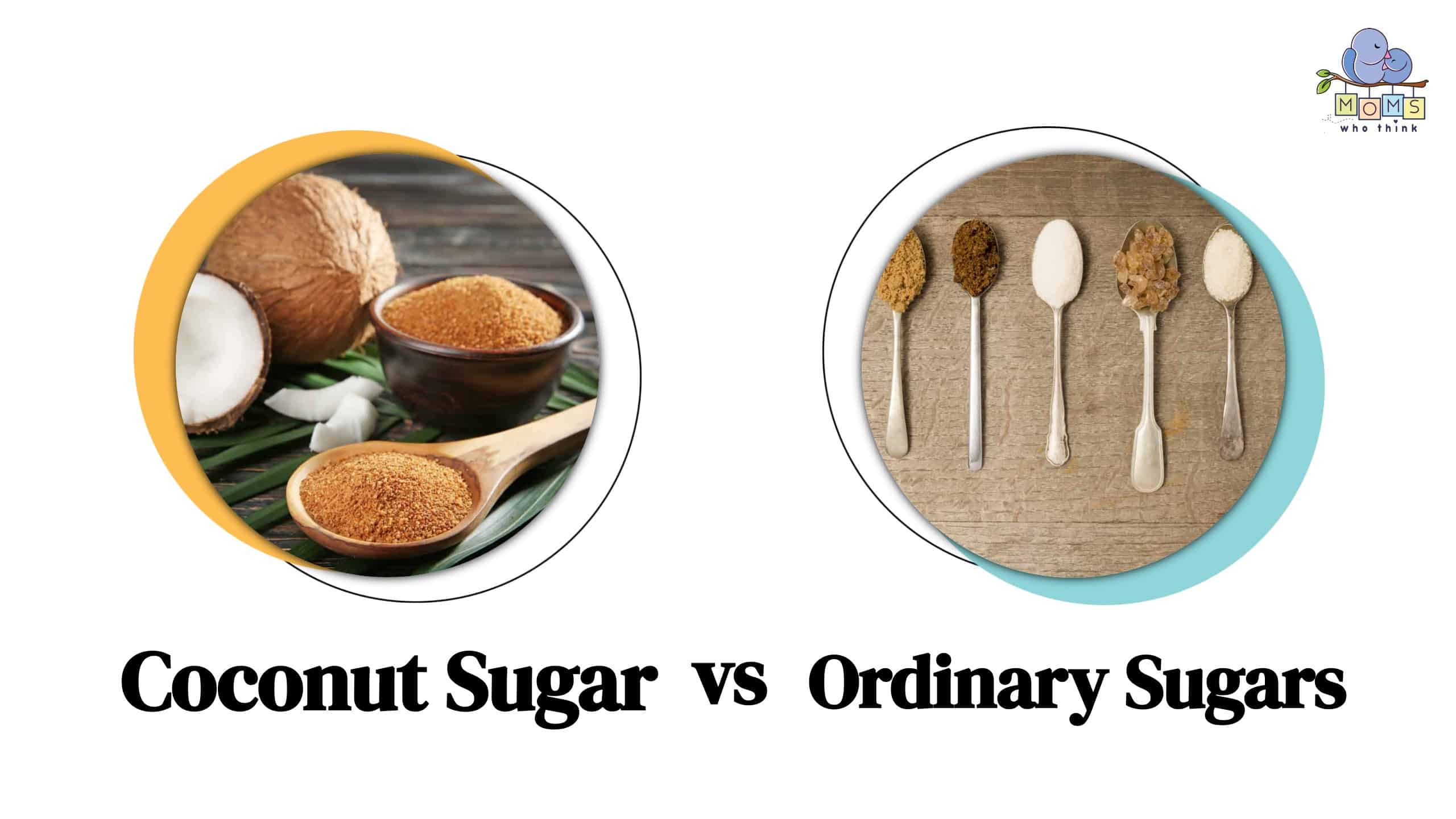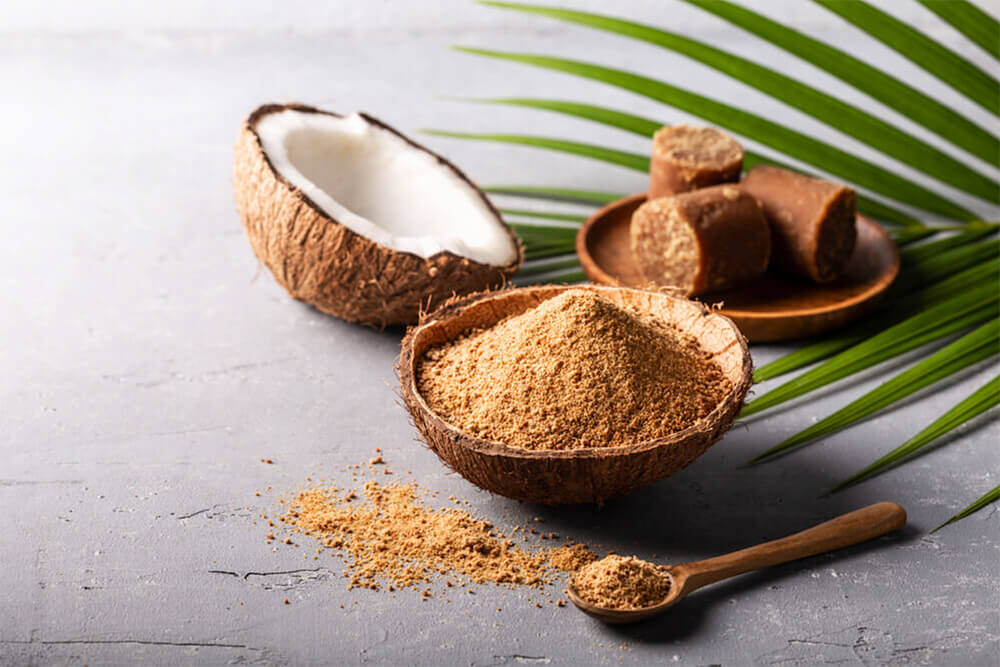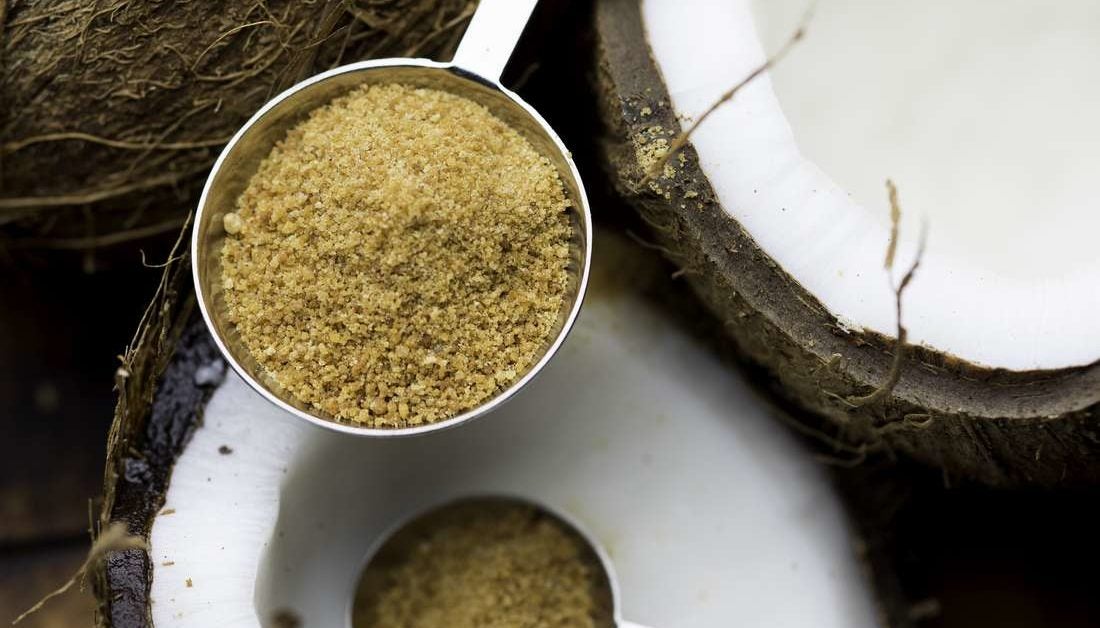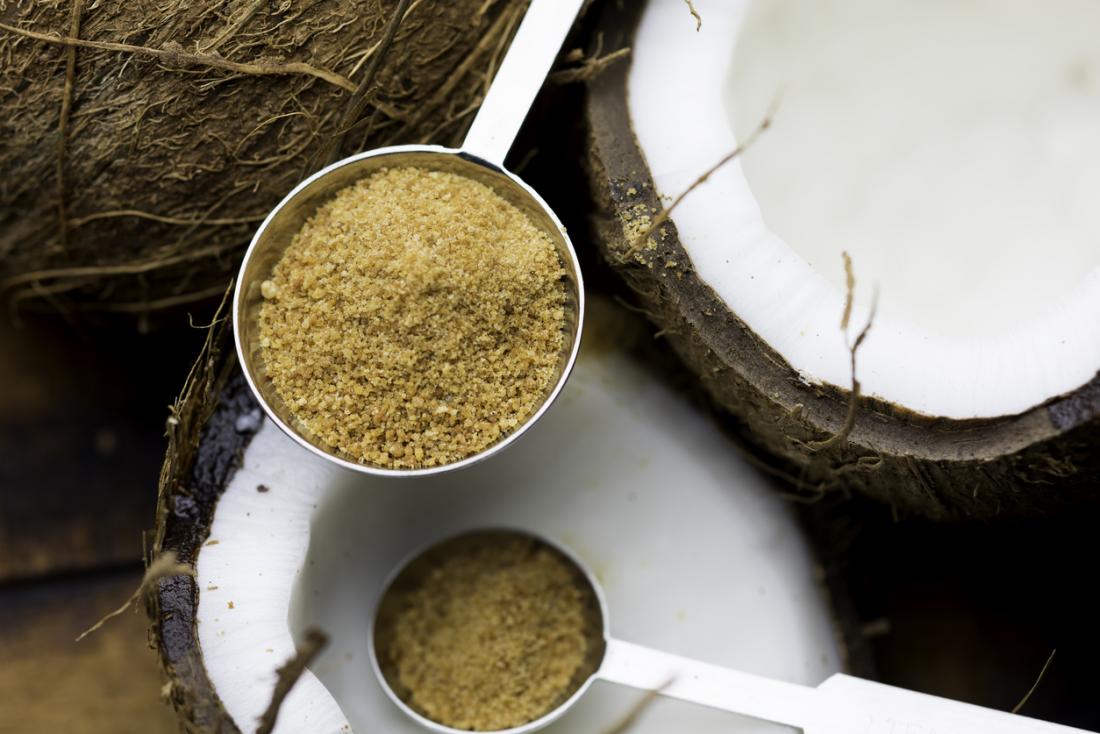Introduction

The growing popularity of natural sweeteners has led to increased interest in coconut sugar and coconut palm sugar. These alternative sweeteners are derived from the sap of coconut palm trees and offer a healthier alternative to refined sugar. While coconut sugar and coconut palm sugar are often used interchangeably, there are subtle differences between the two. This article aims to provide a comprehensive understanding of coconut sugar vs coconut palm sugar, exploring their extraction processes, nutritional compositions, taste profiles, and more. By comparing these factors, readers can make an informed choice when selecting the right sweetener for their needs.
The Popularity Of Coconut Sugar And Coconut Palm Sugar
Coconut sugar and coconut palm sugar have gained popularity in recent years as healthier alternatives to refined sugar. They are sought after by individuals looking for natural sweeteners with a lower glycemic index. Furthermore, their availability in most health food stores and online platforms has contributed to their rising popularity. People appreciate these sugars for their unique flavors, nutritional composition, and use in various recipes such as baked goods, beverages, and savory dishes. This growing demand has resulted in a wide range of coconut sugar and coconut palm sugar products available in the market.
Key Differences Between Coconut Sugar And Coconut Palm Sugar
Key Differences Between Coconut Sugar And Coconut Palm Sugar:
Here are some key differences between coconut sugar and coconut palm sugar:
- Source: Coconut sugar is derived from the sap of coconut flower buds, while coconut palm sugar is made from the sap of various palm trees.
- Taste: Coconut sugar has a rich caramel-like flavor similar to brown sugar, while coconut palm sugar has a milder taste with subtle notes of caramel.
- Glycemic Index: Coconut sugar has a lower glycemic index compared to coconut palm sugar, making it a better option for individuals with diabetes or those watching their blood sugar levels.
- Nutritional Composition: Coconut palm sugar contains slightly more nutrients, such as vitamins, minerals, and antioxidants, compared to coconut sugar.
- Environmental Impact: Coconut palm sugar production is generally more sustainable because it often involves utilizing multiple trees and does not harm the coconut tree’s growth.
Overall, while both coconut sugar and coconut palm sugar are natural alternatives to refined sugar, they differ in taste, glycemic index, nutritional composition, and source. The choice between them depends on individual preferences and dietary needs.
What Is Coconut Sugar?

Coconut sugar, also known as coconut palm sugar, is a natural sweetener derived from the sap of the coconut tree. The sap is extracted by tapping the flower buds of the coconut tree and then boiled to evaporate the moisture, leaving behind solid granules. Coconut sugar has a rich caramel-like flavor, similar to brown sugar, and is often used as a healthier alternative to refined sugars. It contains a variety of nutrients, including potassium, iron, zinc, and B vitamins. Due to its lower glycemic index, coconut sugar is a preferred choice for individuals with diabetes or those watching their blood sugar levels.
Definition And Extraction Process
Coconut sugar, also known as coconut palm sugar, is a natural sweetener derived from the sap of coconut palm tree blossoms. The sap is extracted by tapping the flower buds of the coconut tree. Once collected, the sap is then boiled to remove the moisture, leaving behind solid granules, which are then ground into a fine powder. This extraction process ensures that the sugar retains its rich caramel-like flavor and the nutrients present in the sap.
Nutritional Composition And Health Benefits
Coconut sugar and coconut palm sugar offer similar nutritional profiles. They are both low in calories and have a low glycemic index, making them suitable options for individuals looking to manage their blood sugar levels. Additionally, they contain small amounts of minerals like potassium, magnesium, and zinc. These minerals are essential for various bodily functions, including proper nerve and muscle function. However, it’s important to note that their nutritional benefits are relatively minor compared to other nutrient-dense sources. It’s always recommended to consume these sugars in moderation as part of a balanced diet.
What Is Coconut Palm Sugar?

Coconut palm sugar, also known as coconut sugar, is a natural sweetener derived from the sap of coconut palm trees. The process involves collecting the sap by tapping the flower buds of the tree. The sap is then heated until most of the water content evaporates, resulting in a thick syrup. This syrup is further dried and ground into granules or powder to create coconut palm sugar. Like coconut sugar, it offers a similar taste profile and nutritional composition, making it a viable alternative to traditional white and brown sugars.
Definition And Extraction Process
Coconut palm sugar, also known as coconut sugar, is a natural sweetener derived from the sap of coconut palm trees. The process involves collecting the sap by tapping the flower buds of the tree. The sap is then heated until most of the water content evaporates, resulting in a thick syrup. This syrup is further dried and ground into granules or powder to create coconut palm sugar. Like coconut sugar, it offers a similar taste profile and nutritional composition, making it a viable alternative to traditional white and brown sugars.
Nutritional Composition And Health Benefits
Coconut sugar and coconut palm sugar have a similar nutritional composition, with small variations in nutrient content. They both contain essential nutrients like potassium, magnesium, and zinc. Additionally, they offer trace amounts of vitamins and antioxidants. Compared to traditional white and brown sugars, coconut sugar and coconut palm sugar have a lower glycemic index, meaning they have a slower impact on blood sugar levels. However, it’s important to note that these sugars should still be consumed in moderation, as they are still forms of sugar.
Differences In Production And Source

The production and source of coconut sugar and coconut palm sugar differ in terms of extraction methods and the part of the palm tree from which they are obtained. Coconut sugar is extracted from the sap of the flower buds of coconut palm trees, while coconut palm sugar is derived from the sap of the tree trunk. The sap is collected, heated, and evaporated to form granules. This distinction in production methods results in variations in taste and color profiles between the two sugars.
Methods Of Extracting Sap And Drying
Coconut sugar and coconut palm sugar differ in the methods of extracting sap and drying. Coconut sugar is extracted from the sap of the flower buds of coconut palm trees, while coconut palm sugar is derived from the sap of the tree trunk. The sap is collected through tapping methods, such as incisions made in the palm tree, and then heated and evaporated to form granules. The drying process further removes moisture, resulting in the final sugar product.
Variations In Taste And Color Profiles
Coconut sugar and coconut palm sugar differ not only in their extraction methods but also in their taste and color profiles. Coconut sugar has a rich caramel-like flavor with subtle hints of butterscotch, adding a delightful sweetness to baked goods and desserts. On the other hand, coconut palm sugar has a darker color profile, ranging from dark brown to amber. Its taste is slightly more earthy and molasses-like. These variations in taste and color allow for different flavor profiles in various culinary creations.
Comparing Nutritional Value

When comparing the nutritional value of coconut sugar and coconut palm sugar, both sweeteners are relatively similar. They both contain calories and carbohydrates, with slight variations in nutrient content. However, it’s important to note that coconut sugar may have slightly higher amounts of certain nutrients, such as potassium, magnesium, and zinc, compared to palm sugar. Overall, both sweeteners can be considered as natural alternatives to refined sugar, providing a healthier option for those looking to reduce their sugar intake.
Glycemic Index And Impact On Blood Sugar Levels
When considering the differences between coconut sugar and coconut palm sugar, one important factor to consider is their glycemic index and impact on blood sugar levels. Coconut sugar has a lower glycemic index compared to regular table sugar, ranking around 35-54 on the scale. This means that it raises blood sugar levels at a slower and more controlled rate. Palm sugar, on the other hand, also has a similar glycemic index to coconut sugar. Both sweeteners can be a better option for those concerned about blood sugar control compared to refined sugar.
Content Of Vitamins, Minerals, And Antioxidants
Both coconut sugar and coconut palm sugar contain small amounts of vitamins, minerals, and antioxidants. However, the levels of these nutrients are generally low compared to other food sources. Coconut sugar may provide a slightly higher amount of nutrients like potassium, magnesium, and zinc compared to palm sugar. However, it’s important to note that these amounts are still relatively small. Therefore, while coconut sugar and palm sugar may have some trace amounts of beneficial nutrients, they should not be relied upon as significant sources of vitamins, minerals, or antioxidants.
Making An Informed Choice

When it comes to choosing between coconut sugar and coconut palm sugar, it’s important to consider a few factors to make an informed choice. Firstly, consider the environmental impact of each sugar. Coconut sugar is more sustainable as it comes from the sap of coconut blossoms, while coconut palm sugar is sourced from the sap of various palm trees. Additionally, take into account the availability, price, and recommended usage of each sugar. Both sugars can be used in baking and cooking, but their flavors may lend themselves better to different dishes. Ultimately, personal preference and dietary needs should also be taken into consideration when deciding which sugar to use.
Consideration Of Environmental Impact
When it comes to choosing between coconut sugar and coconut palm sugar, it’s important to consider the environmental impact of each option. Coconut sugar, derived from the sap of coconut blossoms, is considered more sustainable as it utilizes a renewable resource. On the other hand, coconut palm sugar is sourced from the sap of various palm trees, which may contribute to deforestation and habitat loss if not sustainably harvested. By choosing coconut sugar or supporting sustainably sourced coconut palm sugar, individuals can make a positive impact on the environment.
Availability, Price, And Usage Recommendations
Availability, price, and usage recommendations:
Coconut sugar can be found in many grocery stores, health food stores, and online retailers, making it easily accessible for consumers. Its popularity has led to an increase in availability. As for the price, coconut sugar tends to be more expensive than regular sugar, but it is worth the investment for its unique flavor and health benefits.
In terms of usage, coconut sugar and coconut palm sugar can be used interchangeably in recipes, making them versatile options. However, it’s important to note that their flavors may differ slightly, so it’s best to experiment and find the one that suits your taste preferences.
Conclusion

In conclusion, coconut sugar and coconut palm sugar are both natural sweeteners that offer unique flavors and health benefits. Coconut sugar is extracted from the sap of coconut palm tree blossoms, while coconut palm sugar is derived from the sap of different palm trees. Both sugars have a lower glycemic index compared to regular sugar and contain vitamins, minerals, and antioxidants. When choosing between the two, personal preference and environmental impact should be considered. Overall, these sugars can be enjoyed as healthier alternatives in various recipes.
Summary Of The Main Differences Between Coconut Sugar And Coconut Palm Sugar
Coconut sugar and coconut palm sugar are natural sweeteners derived from different sources. While coconut sugar comes from the sap of coconut palm tree blossoms, coconut palm sugar is extracted from the sap of other palm trees. They have variations in taste, color, and production methods. Both sugars have a lower glycemic index than regular sugar and contain vitamins, minerals, and antioxidants. When choosing between the two, personal preference and environmental impact should be considered.
Key Takeaways And Personal Preference Considerations
When choosing between coconut sugar and coconut palm sugar, it is important to consider a few key takeaways and personal preference considerations.
- Taste: Coconut sugar has a rich caramel-like flavor, while coconut palm sugar has a milder taste with subtle notes of caramel and butterscotch.
- Color: Coconut sugar tends to be lighter in color, ranging from light brown to golden brown, while coconut palm sugar is typically darker, ranging from light brown to dark brown.
- Environmental Impact: Coconut palm sugar production has a lower ecological impact as it is derived from other palm trees, while coconut sugar comes specifically from coconut palm tree blossoms. Consider choosing the option that aligns with your sustainability values.
- Availability and Price: Coconut sugar is more widely available and may be more affordable compared to coconut palm sugar, which can be harder to find and potentially more expensive.
- Usage Recommendations: Both sugars can be used as a 1:1 replacement for regular sugar in recipes. Consider experimenting with both to determine which one suits your taste preferences better.
In the end, the choice between coconut sugar and coconut palm sugar ultimately comes down to personal preference and individual dietary needs.
FAQ: Coconut Sugar vs Coconut Palm Sugar
Q: What is the difference between coconut sugar and coconut palm sugar?
A: While the terms “coconut sugar” and “coconut palm sugar” are often used interchangeably, they typically refer to the same type of natural sweetener derived from the sap of coconut palm trees.
Q: How are coconut sugar and coconut palm sugar made?
A: Both coconut sugar and coconut palm sugar are produced by extracting the sap from the flower bud of coconut palm trees. The sap is boiled until it thickens and then dehydrated to form granules or blocks.
Q: Are there any differences in taste between coconut sugar and coconut palm sugar?
A: Generally, coconut sugar and coconut palm sugar offer a similar sweet and caramel-like flavor. However, taste may vary depending on factors such as the source, processing method, and impurities in the final product.
Q: Can coconut sugar and coconut palm sugar be used interchangeably in recipes?
A: Yes, coconut sugar and coconut palm sugar can be substituted for each other in recipes at a 1:1 ratio. Both sugars have a similar level of sweetness, making them suitable replacements in various dishes and beverages.
Q: Are there any nutritional differences between coconut sugar and coconut palm sugar?
A: Coconut sugar and coconut palm sugar contain similar amounts of calories and carbohydrates. They also provide small amounts of nutrients such as potassium, iron, and zinc, but these quantities are not significant enough to offer substantial health benefits.
Q: Are coconut sugar and coconut palm sugar healthier alternatives to other sweeteners?
A: While coconut sugar and coconut palm sugar are considered more natural alternatives to refined sugars, they should still be consumed in moderation. Though they contain trace amounts of minerals, they are still primarily made up of simple sugars and should be enjoyed as part of a balanced diet.
Q: Are coconut sugar and coconut palm sugar suitable for individuals with dietary restrictions?
A: Both coconut sugar and coconut palm sugar are vegan-friendly and gluten-free, making them suitable for those following plant-based or gluten-free diets. However, individuals with diabetes or blood sugar control issues should still exercise caution when consuming these sugars due to their high glycemic index.
Q: Where can I purchase coconut sugar or coconut palm sugar?
A: Coconut sugar and coconut palm sugar can be found in most health food stores, major supermarkets, and online retailers. Look for organic and unrefined varieties for a more wholesome product.
Q: How should coconut sugar and coconut palm sugar be stored?
A: To maintain freshness and prevent clumping, coconut sugar and coconut palm sugar should be stored in a cool, dry place, away from direct sunlight. It is recommended to reseal the packaging tightly after use.
Q: Can coconut sugar or coconut palm sugar be used as a direct replacement for white sugar?
A: Yes, coconut sugar and coconut palm sugar can usually be used as a substitute for white sugar in equal amounts (1:1 ratio) in most recipes. However, note that they may impart a slightly different taste and texture to the final dish.
In conclusion, both coconut sugar and coconut palm sugar are natural, flavorful alternatives to refined sugars. While they do offer some trace nutrients, they should still be consumed in moderation as part of a balanced diet.

From At-Home Dinner Parties to Family Reunions to Office Parties, we can cater your next Event!